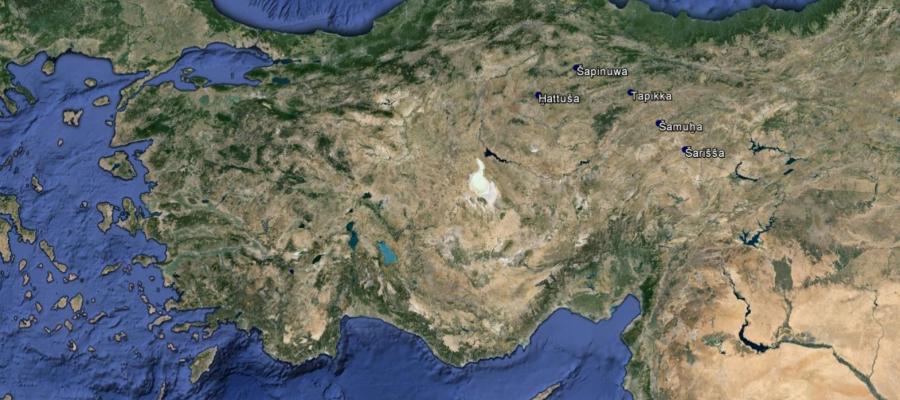Why Study the Hittites?
 Studying Hittite language and culture brings to light some of the foundations of our modern Western civilization. Hittite is the oldest Indo-European language known—older than Greek, Latin, or Sanskrit. As an Indo-European language, Hittite is related to modern-day languages like English: the Hittite word for “water” is watar! But it is not always that transparent. English “who” is kwis in Hittite.
Studying Hittite language and culture brings to light some of the foundations of our modern Western civilization. Hittite is the oldest Indo-European language known—older than Greek, Latin, or Sanskrit. As an Indo-European language, Hittite is related to modern-day languages like English: the Hittite word for “water” is watar! But it is not always that transparent. English “who” is kwis in Hittite.
Despite what is often thought, modern Western civilization did not start with the Greeks. The real cradle of our civilization stood in what is now the Middle East. Many literary and artistic themes and motifs can be traced back directly to that world. The Bible was embedded in ancient Near Eastern society, and the earliest forms of what we call modern science are found in Babylon. Anatolia is the natural bridge between those Eastern worlds and Graeco-Roman civilization and the Hittites and their later descendants in the same area served as intermediaries, handing down ancient Near Eastern culture to the West.
It is the task of Hittitologists to preserve, study, as well as make known and accessible to a wider audience the achievements of Hittite culture and society. The first and most important tool is a good, reliable dictionary based on as much material as possible. That is what the Chicago Hittite Dictionary is.

